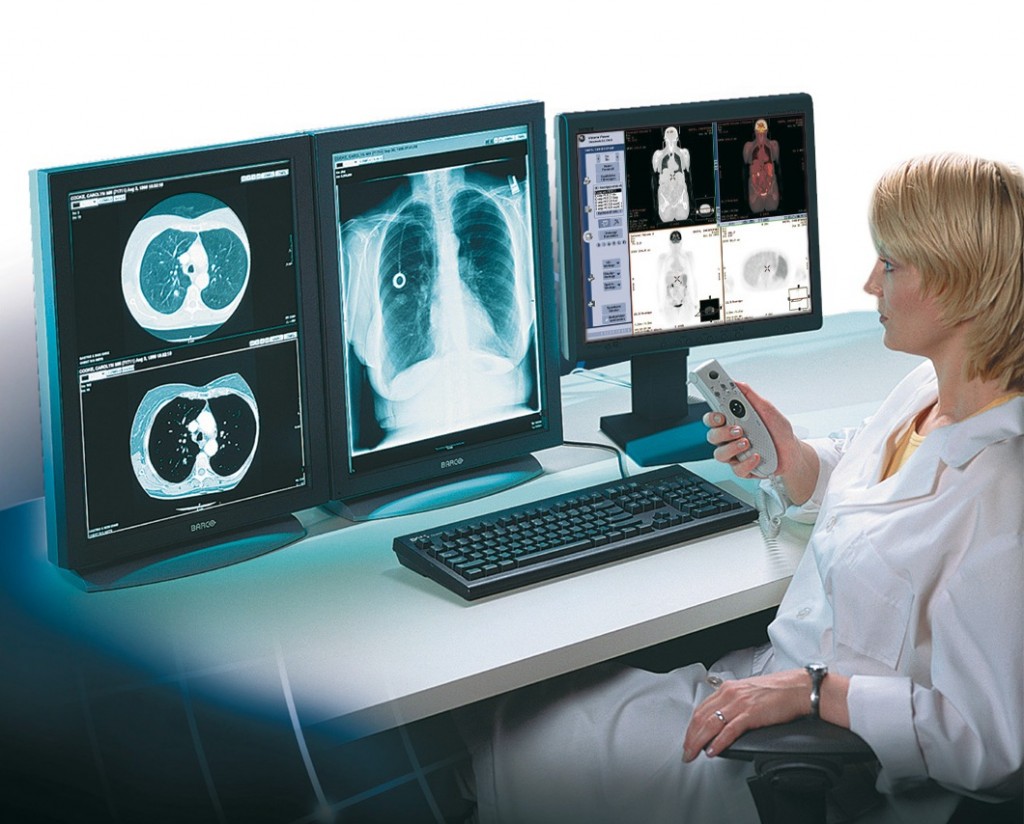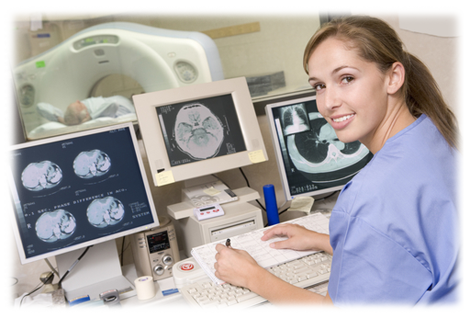radiology
a branch of medicine concerned with the use of radiant energy (such as X-rays) or radioactive material in the diagnosis and treatment of disease.
Radiology technicians produce clear and accurate images of the body that enable physicians to diagnose and treat medical conditions that would otherwise be difficult to document.
In your radiology technician role, you will need the skills to operate several types of equipment that help physicians diagnose medical conditions. Radiology techs can be responsible for conducting procedures using the following devices throughout the day:
Computerized Axial Tomography (CAT)
Mammography
Positron Emission Tomography (PET)
X-ray
A radiology technician is not the same as a radiologic technologist, who, in addition to being responsible for all of the above, is also tasked with being an expert for their particular field of specialty.

You’ll study courses such as:
Anatomy
Pathology
Patient care
Medical ethics
Radiation physics and protection
Image evaluation
Radiologists graduate from accredited medical schools, pass a licensing examination, and then go on to complete a residency of at least four years of unique post-graduate medical education in, among other topics:
Radiation safety and protection
Radiation effects on the human body
Appropriate performance and interpretation of quality radiological and medical imaging examinations

Radiologic procedures such as CT, MRI, and PET are medically prescribed and should only be performed by appropriately trained and certified physicians under medically necessary circumstances.
Chest Radiology:
The radiology subspecialty devoted to diagnostic imaging and diagnosis of diseases of the chest, especially the heart and lungs. This includes x-rays, CT (computed tomography or CAT), Ultrasound, MRI and chest procedures, such as lung biopsy and thoracentesis or drainage of fluid from the chest.

Radiologic tech training program options include:
1-year certificate or diploma
2-year associate’s degree
4-year bachelor’s degree
made by : @mehdikh19
nice post, cheers :)
Thanks. I am interested in "bone age"... Supposedly, "bone age" will show if a short kid can grow taller, or if his "bone age" shows that he is "older" than his chronological age, then doctors guess that the kid cannot grow taller with growth hormone.
The only problem to this theory is that I have seen too many cases of short kids who were told that they will not grow taller, because their "bone age" shows that they are "older" than their chronologic age, therefore their bones will not grow longer anymore... But then these short kids take growth hormone and they do grow taller. I have seen this happen in at least 20 cases.
Congratulations @mehdikh19! You have completed some achievement on Steemit and have been rewarded with new badge(s) :
Click on any badge to view your own Board of Honor on SteemitBoard.
For more information about SteemitBoard, click here
If you no longer want to receive notifications, reply to this comment with the word
STOPgreat post, mehdikh19 as usual!
great info about science medicine and radiology... thanks for sharing...